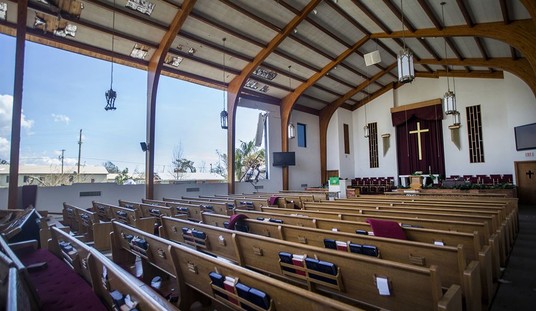VATICAN CITY – The Extraordinary Synod on the Family had quite an eventful day, but in this case the news came almost entirely in the afternoon — which was good, because I missed the morning for a stroll through the Vatican gardens.
Today, though, was mostly about the news. The circoli minori, the small discussion groups working on the relatio after the first week of the synod, completed their reviews yesterday and began to put together their recommendations. At the time of the briefing, those had not been published, but were shortly afterward after a brief bit of confusion. Today’s briefing took place almost entirely in Italian, although Fr. Thomas Rosica provided a brief English overview of the synodal work at the beginning, along with a message to the media. Read the reports as a whole, without cherry-picking the lines that jump out from the text, he advised.
This time, the entire synod voted on whether to publish the circoli minori reports and a broad consensus was in favor of it (and may have been unanimous, although there was some confusion on that point between the translations). Everyone stressed that these reports from the small groups, while their official final word, are still “working documents” for the rest of the synod. The synod will produce a new relatio based on the recommendations and amendments proposed in these reports, and hope to finish that by Saturday afternoon. However, Fr. Federico Lombardi cautioned that it might take several days for that “final” relatio to get published to the media.
Later, the Vatican published the circoli minori reports on their website, and it became clear that the English-language groups, at least, had serious issues with the original relatio and the manner in which it was published and received. The group moderated by Cardinal Raymond Burke, Group A, sounded surprisingly gentle, considering Burke’s reaction to the relatio on Monday:
For example, where the Relatio appeared to be suggesting that sex outside of marriage may be permissible, or that cohabitation may be permissible, we have attempted to show why such lifestyles do not lead to human fulfillment. At the same time, we want to acknowledge that there are seeds of truth and goodness found in the persons involved, and through dedicated pastoral care these can be appreciated and developed. We believe that if we imply that certain life-styles are acceptable, then concerned and worried parents could very easily say “Why are we trying so hard to encourage our sons and daughters to live the Gospel and embrace Church teaching?”
Burke’s group wants a clear statement that the divorced and remarried should be encouraged to remain in parish life and to seek Christ “through other means,” but “do not recommend the admission of the sacraments” to them. They also want a clarification on any mention of the “law of graduality” to note that doctrine is not gradual, but the path to holiness is where it is applied.
All three English-language groups worried that the tone of the relatio was too pessimistic about achieving a sacramental marriage. All of them want a more positive focus on successful families and the joy of sacramental marriage. All three complained in one form or another about the first relatio and its release, although Group C confined that to an expression of “surprise.”
Group B, which was moderated by Cardinal Wilfrid Fox Napier of Durban, South Africa, cited concerns about “some of the conclusions drawn in the Relatio, about its methodology, its complicated language (compounded by poor translation) and of the effects of its publication before it had been reviewed by the Synodal Fathers.” Group B also implicitly proposed that those in cohabitation or remarriage without annulment be proscribed from receiving the Eucharist but encouraged to participate in parish life in every other way.
That became even more significant because of a change announced at the beginning of the briefing. Pope Francis appointed Cardinal Napier to the commission that will draft the final relatio for the vote on Saturday, in order to allow for the African bishops to have a voice. Cardinal Napier was highly critical of the draft relatio on Tuesday, saying that it did not reflect the actual discussion on the synod’s most sensitive topics, especially on homosexuality and non-conforming relationships. The English-language groups appear to have agreed, and having Napier on the writing commission is a surprising gesture to the critics of the relatio process.
John Thavis reports that the other language groups have similar takes on the discussion (although with some important differences remaining), but express a desire for a stronger testimony to Catholic teaching on marriage:
These reports, taken as a whole, represent a real test for Pope Francis’ Gospel of “mercy,” because they not only articulate the desire for doctrinal qualifications in the synod’s document but also critique what one group called the “search for a facile populism that silences and muffles” what the church teaches about marriage and the family.
More than one person here saw that “facile populism” line as directed at Pope Francis himself. …
More specifically, on the “law of graduality,” the principle that the church should reach out, value and accompany those who don’t fully accept its teachings, two groups said the concept cannot be applied in these situations. Several other groups questioned its application. Others took issue with the relatio’s attempt to take Vatican II’s search for “positive elements” outside the church’s structures and apply that principle to irregular unions outside of sacramental marriage.
Almost all the groups expressed the desire that the final synod document present a more positive image of sacramental marriage, explicitly express the church’s teachings, and rediscover the church’s “prophetic” voice in criticizing modern threats to the traditional family.
At the briefing, Cardinal Christoph Schönborn seemed to straddle that line similarly to what we have seen most of this week. He said that Pope Francis had called them to “walk with” those in difficult situations but not judge, while at the same time not falling into relativism. In response to a question about the nature of same-sex relationships, Schönborn offered a clearer synopsis. “Respect for every human person,” he replied to one reporter, “does not mean respect for every human behavior.”
Based on the circoli minori reports, it appears that the relatio will have significant revisions from Monday’s version, and that may give the impression that the synodal discussion changed. In this case, though, it appears that it actually stayed the same, but the relatio caught up to it.
And the Vatican gardens? That’s another story — which I’ll tell at the Catholic Match Institute blog later today. Be sure to check it out.
Update: This came up in the briefing, but it’s not really as big of a deal as it sounds:
The Vatican is watering down a ground-breaking overture to gays — but only if they speak English.
After a draft report by bishops debating family issues came under criticism from conservative English-speaking bishops, the Vatican released a new translation on Thursday.
A section initially titled “Welcoming homosexuals” is now “Providing for homosexual persons,” and the tone of the text is significantly colder and less welcoming.
What happened? The previous English translation created a big controversy, and some complaints (apparently from within the synod as well as outside) that the English translation may have been the problem. This was the first try at an alternative translation, and it arguably made matters worse. At one point during today’s briefing, after being challenged on this twice, Fr. Lombardi asked the reporters to submit their suggestions for a more accurate translation and he’d pass them along. I’m not entirely sure he was joking.
Why does this not matter all that much? Keep in mind that the English translation is not an official document. The official documents from this synod are and will be the Italian versions; the official debate language is Italian as well. The Vatican isn’t even translating many of the documents into English for the press, which is a change from the conclave. The language didn’t change in the Italian version. Ergo, officially, the official draft relatio didn’t change at all, no matter how much anyone plays with the other versions.
So in the end, all that changed is the unofficial translation of a document that, er, expired today anyway. The purpose of the draft relatio was to frame the debate in the circoli minori so that amendments, additions, and rescissions could be decided. The synod will begin crafting the new relatio (in Italian!) tomorrow, and voting will take place on Saturday afternoon for the final version of this phase. Essentially, this is a moot point now.
Also, correction: I misspelled circoli minori several times in the original version of this post. I believe I caught them all.









Join the conversation as a VIP Member